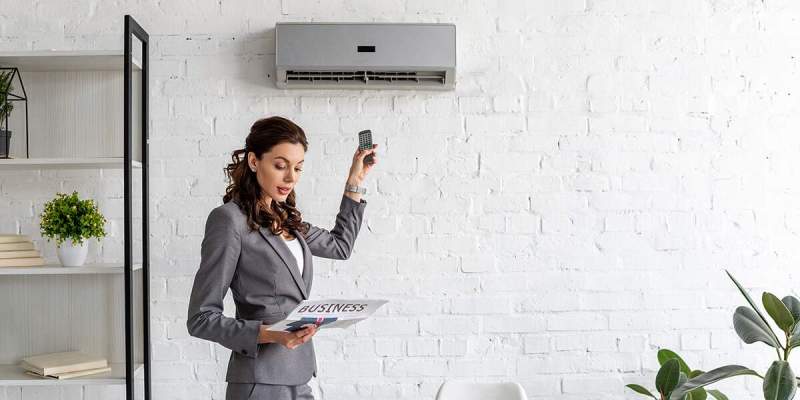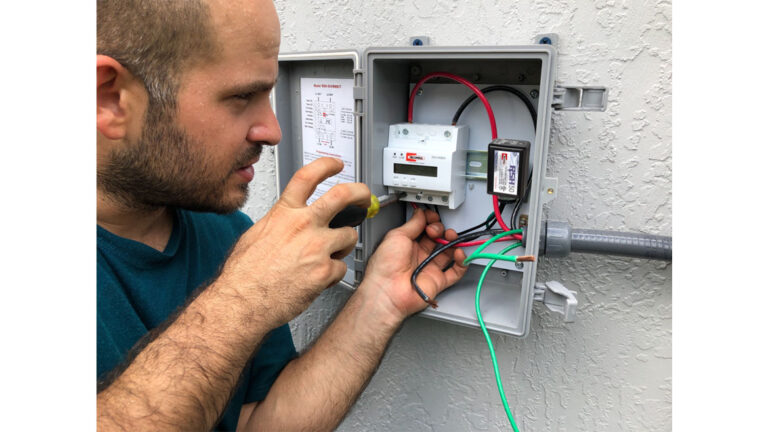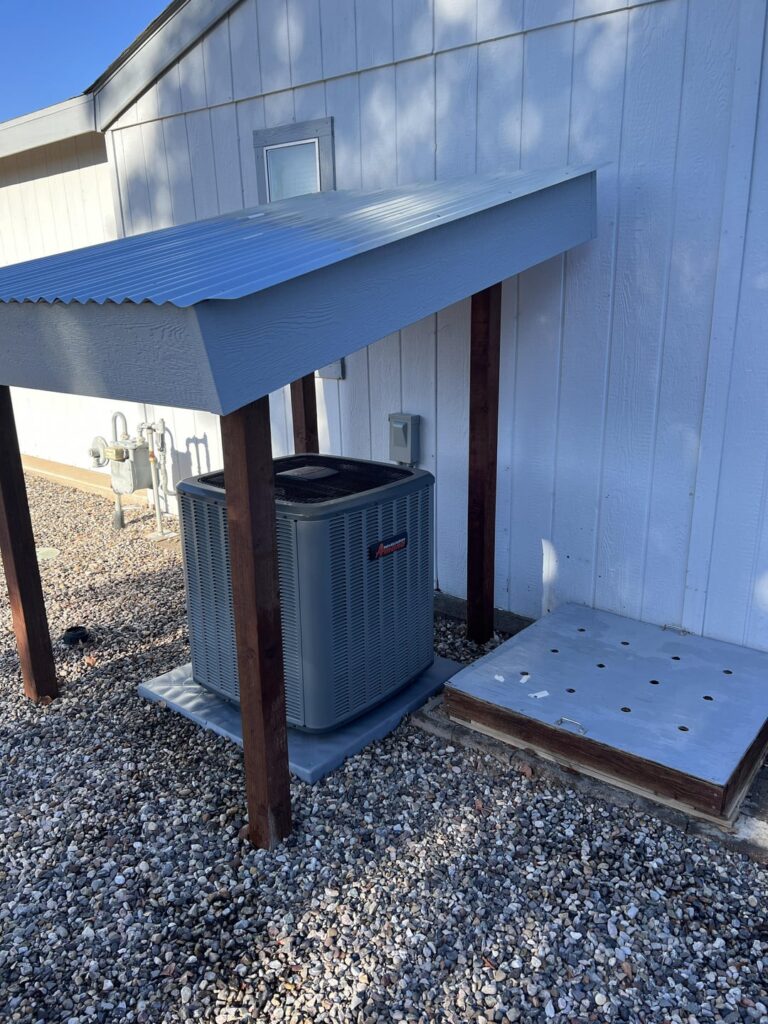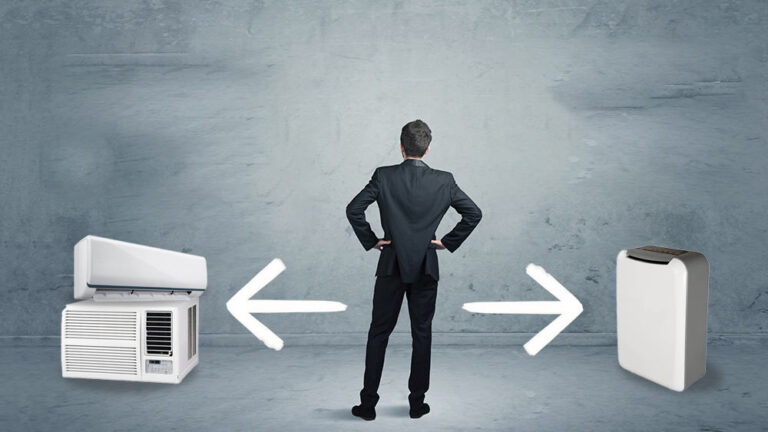Is It Illegal To Not Have Air Conditioning At Work: Know Your Rights
It is not illegal to not have air conditioning at work. Employers must ensure a reasonable and safe working environment.
Workplace comfort is crucial for productivity and employee well-being. While air conditioning is not legally required, employers must provide a reasonable temperature. Excessive heat can lead to health issues, reducing efficiency and morale. Fans, proper ventilation, and hydration can help maintain a comfortable environment.
Employers should regularly assess workplace conditions to ensure safety and comfort. Proper temperature regulation can improve employee satisfaction and performance. By addressing temperature concerns, businesses create a healthier, more productive workspace. Understanding these requirements helps maintain a balanced and effective work environment, benefiting both employees and employers.
Legal Requirements For Workplace Air Conditioning
Workplace air conditioning can impact employee comfort and productivity. Understanding the legal requirements is crucial for employers.
Federal Regulations
The Occupational Safety and Health Administration (OSHA) oversees workplace safety. OSHA does not have specific rules for air conditioning.
OSHA requires employers to provide a safe and healthy environment. This includes ensuring the workplace is not too hot or cold.
| Regulation | Details |
|---|---|
| General Duty Clause | Employers must keep the workplace free from hazards. |
| Heat Standards | Guidelines to prevent heat-related illnesses. |
State Laws
State laws vary on workplace air conditioning. Some states have stricter rules than others.
- California: Requires cooling systems in high-heat industries.
- New York: Employers must prevent extreme heat exposure.
- Texas: No specific laws, but general safety rules apply.
Check your state’s regulations for specific requirements. This ensures compliance and employee well-being.

Credit: m.youtube.com
Employer Responsibilities
Employers have a duty to provide a comfortable workplace. This includes regulating the temperature. It’s important to understand employer responsibilities for air conditioning.
Providing A Safe Environment
Employers must ensure the workplace is safe. A safe environment includes maintaining proper temperature. This helps workers stay healthy and productive.
High temperatures can lead to heat stress. Low temperatures can cause discomfort and illness. Both conditions affect worker performance.
Here are some steps employers can take:
- Install air conditioning units.
- Provide fans or heaters as needed.
- Regularly check and maintain HVAC systems.
Addressing Temperature Complaints
Employees may complain about workplace temperature. It’s vital for employers to address these concerns promptly.
Steps to address complaints include:
- Listen to employee concerns.
- Investigate the temperature issue.
- Make necessary adjustments to the HVAC system.
- Provide temporary solutions like fans or heaters.
Keeping an open line of communication is key. Employees should feel comfortable reporting temperature issues.
Employee Rights In Hot Work Environments
Working in a hot environment can be tough. Employees have rights to stay safe and healthy. Employers must ensure a comfortable workplace. This includes managing heat levels. Let’s explore what protections are available.
Heat-related Illnesses
Heat can cause serious health issues. Here are some common heat-related illnesses:
- Heat Exhaustion: Symptoms include heavy sweating, weakness, and dizziness.
- Heat Stroke: This is a medical emergency. Symptoms include confusion, seizures, and loss of consciousness.
- Heat Cramps: Painful muscle cramps can occur from heavy sweating.
Understanding these illnesses is crucial. They can lead to severe health problems. Employers must take steps to prevent them.
Protection Measures
Employers must protect workers from heat. Here are some key measures:
- Provide Water: Ensure ample water is available. Encourage employees to drink often.
- Shade and Cool Areas: Offer shaded or air-conditioned rest areas.
- Frequent Breaks: Allow regular breaks to cool down and hydrate.
- Training: Educate employees on recognizing and responding to heat stress.
- Monitor Conditions: Keep track of temperature and humidity levels.
These measures can prevent heat-related illnesses. A safe work environment is a legal right. Employers must ensure these protections are in place.
Osha Guidelines On Workplace Temperature
Many workers ask if it is illegal to not have air conditioning at work. The Occupational Safety and Health Administration (OSHA) provides guidelines to ensure safe and healthy working conditions. Understanding these guidelines can help you know your rights.
Recommended Temperature Ranges
OSHA does not set specific temperature requirements. Instead, they recommend keeping workplace temperatures in a comfortable range.
| Work Environment | Recommended Temperature Range |
|---|---|
| General Office | 68°F – 76°F (20°C – 24°C) |
| Industrial Work | 60°F – 76°F (15°C – 24°C) |
These ranges help maintain worker comfort and productivity. In extreme temperatures, employers should take extra precautions.
Enforcement Policies
OSHA enforces rules to ensure safe working conditions. They may inspect workplaces if complaints are made.
- Inspections can result from employee complaints.
- Employers must follow OSHA guidelines.
During inspections, OSHA will check if employers provide adequate ventilation and heating. They will also look for other hazards that may affect worker safety.
To ensure compliance, employers should conduct regular checks of their HVAC systems. Maintaining proper temperature controls helps keep workers safe and comfortable.
Exceptions And Special Cases
Air conditioning at work is essential for comfort and productivity. But, are there exceptions where it’s not required? Let’s explore the exceptions and special cases that might apply.
Industry-specific Rules
Certain industries have unique rules about air conditioning. For example, industries with high-heat environments often need special cooling systems. These include:
- Manufacturing plants
- Commercial kitchens
- Warehouses
In these settings, proper cooling is crucial. It ensures worker safety and product quality. Regulations may require specific types of air conditioning.
Small Business Considerations
Small businesses may face different rules. The size of the business and the nature of the work can influence air conditioning needs. Consider the following:
- Budget constraints
- Building infrastructure
- Number of employees
Small businesses might use alternative cooling methods. These can include fans or portable air conditioners. Ensuring a comfortable work environment is still important.

Credit: m.youtube.com
What To Do If Air Conditioning Is Absent
Working in a hot office without air conditioning can be tough. Here are steps to take if your workplace lacks air conditioning:
Filing A Complaint
If the air conditioning is absent, you can file a complaint. Start by reporting the issue to your immediate supervisor. If they don’t act, escalate the issue to the HR department. Document your complaints and keep records of your communications.
If internal reporting fails, consider contacting the Occupational Safety and Health Administration (OSHA). OSHA oversees workplace safety and can enforce regulations. Provide detailed information about your working conditions when filing a complaint with OSHA.
| Steps | Action |
|---|---|
| Step 1 | Report to Supervisor |
| Step 2 | Escalate to HR |
| Step 3 | Contact OSHA |
Seeking Temporary Solutions
While waiting for a permanent fix, seek temporary solutions. Use fans to circulate air and keep your workspace cooler. Personal desk fans can be very effective.
Drink plenty of water to stay hydrated. Wear light and breathable clothing to keep cool. If possible, take short breaks in shaded or cooler areas.
- Use fans to circulate air.
- Stay hydrated by drinking water.
- Wear light and breathable clothing.
- Take breaks in cooler areas.
Consider asking for flexible working hours. Working during cooler parts of the day can help. If possible, request to work from home where you can control the temperature.
Improving Workplace Comfort Without Ac
Many workplaces struggle with the heat during summer. Air conditioning can be costly and not always available. Luckily, there are ways to stay cool without AC. Here are some methods to improve comfort at work.
Alternative Cooling Methods
- Fans: Use ceiling or desk fans to circulate air.
- Natural Ventilation: Open windows and doors for a natural breeze.
- Cooling Mats: Place cooling mats on chairs for a cool seat.
- Portable Coolers: Use portable evaporative coolers for localized cooling.
- Shade: Use blinds or curtains to block direct sunlight.
Employee Adaptations
Employees can also take steps to stay cool. Here are some simple adaptations:
- Dress Code: Allow light and breathable fabrics.
- Hydration: Encourage drinking water regularly.
- Breaks: Offer short, frequent breaks to cool down.
- Flexible Hours: Shift work hours to cooler parts of the day.
- Personal Fans: Provide small fans for individual use.
These steps can greatly improve workplace comfort. They help employees stay productive and happy.
Real-life Case Studies
Real-life case studies show the importance of air conditioning at work. These examples highlight interventions and legal precedents. They show how companies handled the issue and the outcomes.
Successful Interventions
In a tech company, employees faced extreme heat. This led to discomfort and decreased productivity. The management decided to install air conditioning. They saw a 20% increase in productivity. Employee satisfaction also improved.
Another case involves a retail store. Workers complained about the heat. The store owner installed portable air conditioners. This quick fix improved working conditions. Customer satisfaction also increased due to a more pleasant shopping experience.
| Company | Problem | Solution | Outcome |
|---|---|---|---|
| Tech Company | Extreme heat | Installed AC | 20% productivity boost |
| Retail Store | Worker complaints | Portable AC units | Better employee and customer satisfaction |
Legal Precedents
Legal cases also stress the importance of air conditioning at work. In one case, a factory faced a lawsuit. Workers claimed unsafe working conditions due to heat. The court ruled in favor of the employees. The factory had to install air conditioning and pay damages.
Another case involved a school. Teachers and students suffered in the heat. Parents filed a complaint. The school district had to install air conditioners in all classrooms. This improved the learning environment significantly.
- Factory Lawsuit: Workers won the case. Factory installed air conditioning.
- School Complaint: Parents’ complaint led to air conditioners in classrooms.

Credit: apolloairtx.com
Frequently Asked Questions
Is Working Without Ac An Osha Violation?
Working without AC is not necessarily an OSHA violation. OSHA requires employers to keep workplaces safe and healthy. Employers must provide proper ventilation and temperature control to ensure worker safety.
Can You Work If There Is No Ac?
Yes, I can work without AC. A fan or natural ventilation can help maintain comfort.
Is Air Conditioning Required By Osha?
OSHA does not mandate air conditioning. However, employers must provide a safe working environment, which can include maintaining reasonable temperatures.
Conclusion
Ensuring a comfortable work environment is crucial for productivity. While not always illegal, lack of air conditioning can breach health regulations. Employers should prioritize staff well-being to avoid legal issues. Always check local laws and guidelines to ensure compliance. A comfortable workplace boosts morale and overall efficiency.







